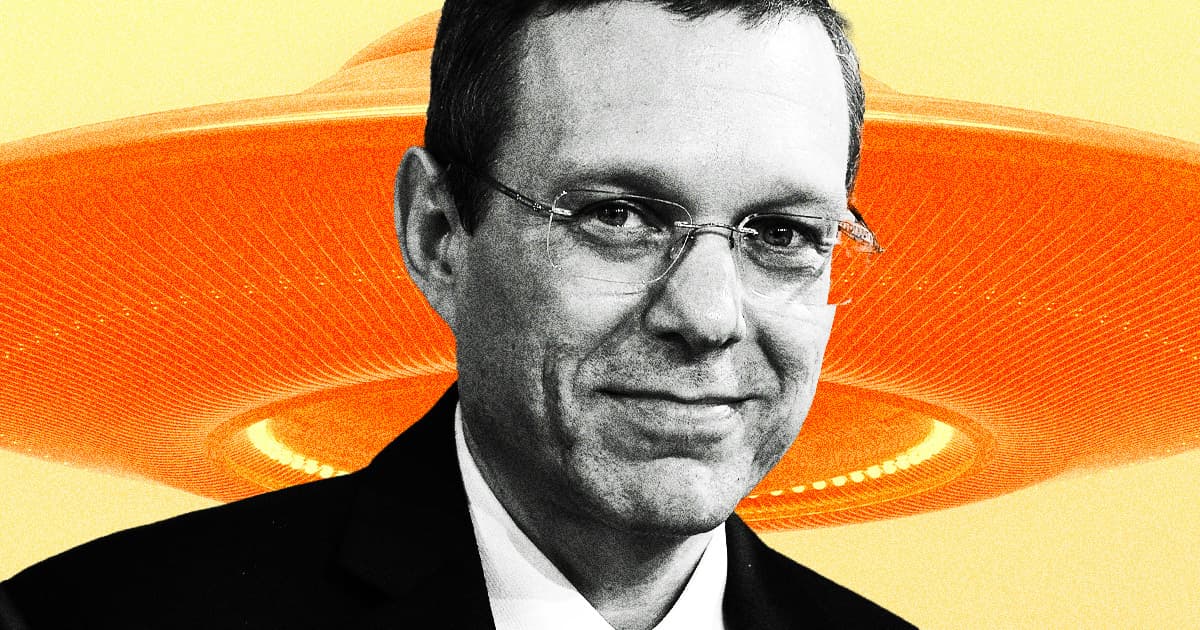In January 2014, a three-foot meteor screamed through our atmosphere at the blistering speed of 134,200 mph and crash-landed somewhere in Papua New Guinea. Since then, the event has acquired mythic proportions, especially after American military officials confirmed that it almost certainly came from outside our solar system.
Avi Loeb, one of the most prominent alien hunters in recent years and a Harvard University astrophysicist, has been intent on proving that the Papua New Guinea meteor — technically called CNEOS 2014-01-08 — might actually be an alien spacecraft, so he recently organized an expedition to comb the ocean floor in the vicinity of the meteor's sighting for evidence.
So far, he's found tiny balls of glassed rock and metal, which some have dismissed as industrial waste. Undeterred by naysayers and flush with cash from an interested public, he told The Guardian in a new article that he's headed back again to Papua New Guinea in the spring to hopefully find bigger fragments of what he still thinks could have come from an alien probe.
"Then you can easily tell if it’s a rock or a technological gadget base," he told the newspaper in a wide-ranging interview. Presumably joking, he added that, "of course, if it’s a gadget, it would have screws, it would have perhaps buttons on it."
There's been an incredible amount of interest around Loeb's work, which attracted a Netflix crew who tagged along on an expedition he spearheaded earlier this year to Papua New Guinea, according to The Guardian.
And it's not just Loeb getting headlines on the search for extraterrestrial life. The year 2023 has been a bonanza for the alien crowd, with congressional hearings and a push to declassify documents about unidentified flying objects (another interest of Loeb, who's been working on a UFO-spotting system).
Loeb is one of the most prominent academics riding — or perhaps sometimes pushing — this wave of alien fandom, complete with his Harvard bonafides and his long track record of publishing more traditional scientific research. His distinguished curriculum vitae lends an air of imprimatur to what some think is a quixotic quest.
He has sometimes alienated more sober-minded colleagues with his search for non-terrestrial lifeforms or their tech, as well as with his penchant for spreading the word on his findings beyond the confines of peer-reviewed papers. These have taken the form of blogs, a Times Square advertisement, a best selling book, and a one-man show, according to The Guardian. And of course the Netflix crew that filmed him in Papua New Guinea.
What has Loeb convinced that the meteor in Papua New Guinea could be of alien origin? He told The Guardian that the meteor "did not burn up high above the Earth" is a sign that it could be made of "artificial" material.
"This object was faster than 95 percent of the stars near the Sun, relative to what is called the local standard," he said in the interview. "That’s what led me originally to suspect maybe it’s a spacecraft. It was able to maintain its integrity to very high stress. And so, we said it must be tougher than even iron meteorites."
Whatever Loeb finds in his next trip, it'll surely grab headlines — and we'll be watching.
More on Avi Loeb: Futurism's Interview With Avi Loeb
Share This Article
